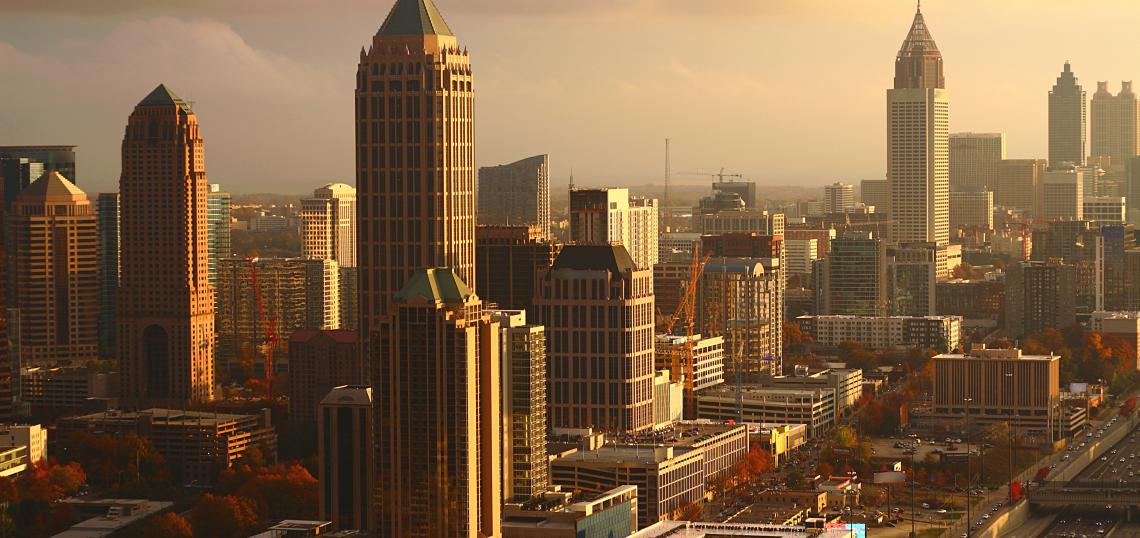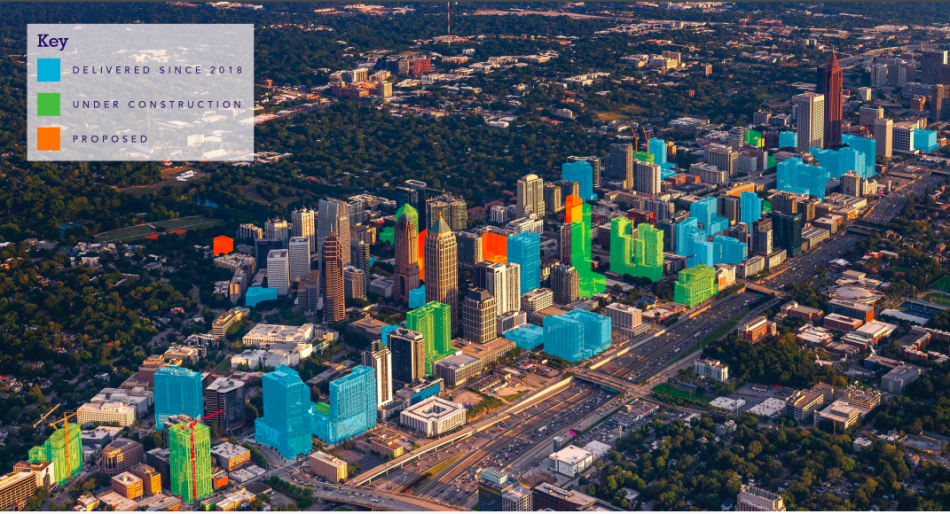Perhaps you saw the recent news that metro Atlanta’s population has leapfrogged three spots since the COVID-19 pandemic to become the sixth largest metropolitan area in the U.S.
That surge in new residents could be just the beginning, as people flee extreme climate scenarios ranging from wildfires, drought, extreme heat, hurricanes, and especially sea level rise in coming decades, according to a new report by Yale Climate Connections, a news service of journalists, meteorologists, and radio producers directed by the Yale School of the Environment at Yale University.
Citing journalist Abrahm Lustgarten’s new book, “On the Move: The Overheating Earth and the Uprooting of America,” the Yale report points to metro Atlanta as a logical landing spot for refugees should climate crises keep playing out as many scientists and experts predict.
“[F]ew places in the U.S. will likely see more climate migrants than Atlanta,” writes Yale Climate Connections’ Jeff Masters, “which lies close to coastal areas of the Southeast U.S. where sea level rise can be expected to displace millions of people this century.” The tens of thousands of people who flocked to metro Atlanta in the aftermath of Hurricane Katrina 18 years ago are cited as one example; now, the only U.S. cities likely to see a larger influx of climate migrants strictly from sea-level rise are Austin (more that 800,000 migrants) and Orlando (450,000).
The book cites a 2017 study conducted by the University of Georgia’s Mathew Hauer that predicted metro Atlanta would absorb more than 320,000 climate refugees by the year 2100, all fleeing a projected 1.8-meter rise in sea levels in coastal areas. But Hauer himself now believes that estimate was too low—as much as five to 18 times too low, in fact—as it doesn’t take into account the families of migrants who often eventually accompany them to new cities, and workers added to economies to support population growth.
Given that metro Atlanta’s population is already forecasted to swell by millions of people by 2050, the influx could be problematic (if not catastrophic) for a region that’s ill-prepared, according to the report.
Atlanta’s current Chattahoochee River-fed water supply is described as “inadequate” for a population boom. Lake Lanier’s limited water reserve, the ongoing water war saga with Alabama, a forecast of more days above 95 degrees annually by 2050, and the increased needs of more water for irrigated farmland are cited as potential problems.
Some other potential issues to consider: Metro Atlanta’s highway and public transit infrastructure is also described as inadequate for absorbing hundreds of thousands of more residents. And Lustgarten writes that Atlanta’s stormwater drainage system remains troubled, without proper funding earmarked for upgrading it to what would be required in a much larger metro.
Then there are the social implications. The City of Atlanta and its partners have made good on delivering and planning thousands of affordable housing units, but vastly more expensive home prices, uneven access to fresh foods and grocery stores, and Atlanta’s status as one of America’s least equitable cities could all be compounded by a surge of new residents. Even now, Lustgarten posits, Atlanta is a “virtual tinderbox for social conflict.”
Gulp?
...
Follow us on social media:
Twitter / Facebook/and now: Instagram
• New Census estimate puts Atlanta past Washington DC, Philadelphia (Urbanize Atlanta)







